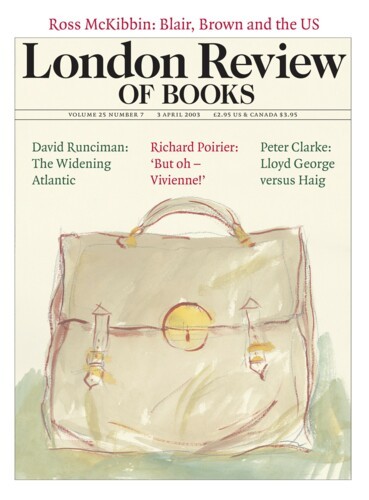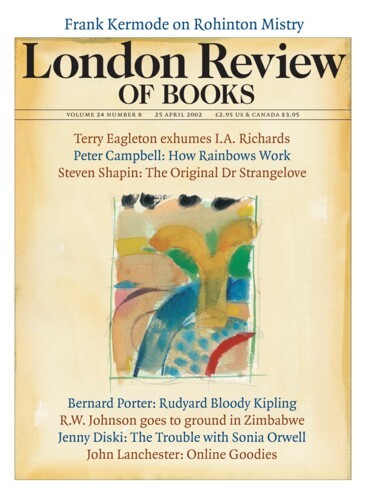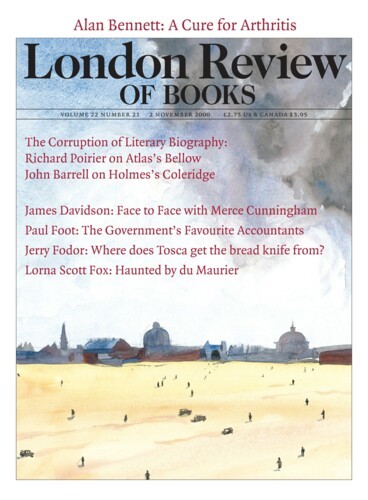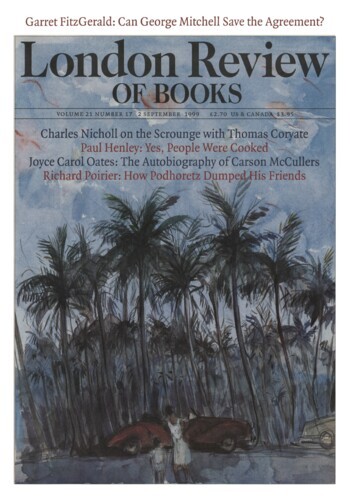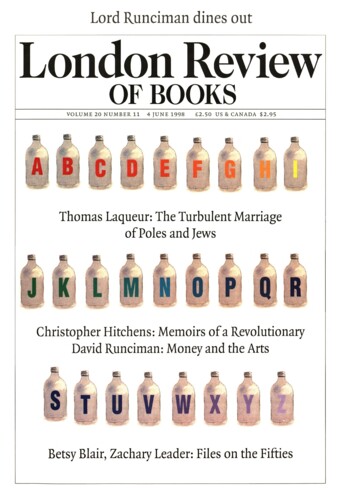In the Hyacinth Garden: ‘But oh – Vivienne!’
Richard Poirier, 3 April 2003
“[Eliot’s] lifelong sexual preoccupations and obsessions with the consequences of the sexual act did not emerge from the marriage but were only greatly intensified by it. And it is this intensification, felt in the rhythms, the visionary grandeur and abruptions in his poetry, that went on to make him one of the most culturally challenging and controversial figures in the history of Anglo-American letters.”
